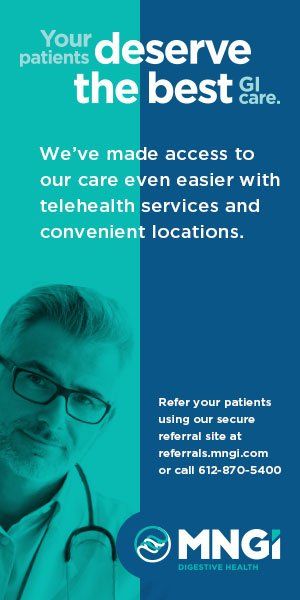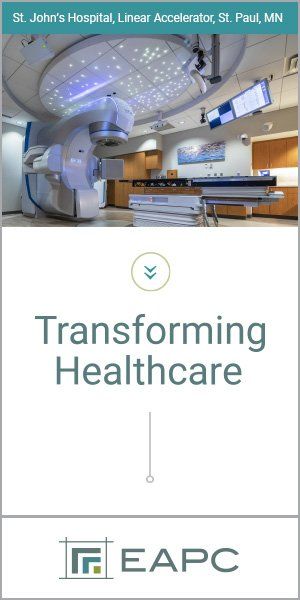Capsules
MDH Offers Trafficking Recognition Training
Human trafficking survivors experience trauma and have unique needs in health care settings. A new online course from the Minnesota Department of Health Safe Harbor Program, Serving Survivors of Human Trafficking in Health Care Settings, teaches heath care professionals how to identify survivors of human trafficking and provide trauma-responsive care. The training is ideal for health care professionals working in many settings, including emergency room departments, community clinics and other health care settings. It was created with input from health care providers and subject matter experts. The course consists of six consecutive modules, each around 15 minutes or less, and can be completed on your own time. While all modules should be completed in order, they do not need to be completed all at once. The course is free. For more information: Safe Harbor Health Care Worker Training (state.mn.us) Access the training through the MDH eLearning center. Once logged in, use the search feature to search for the training. Course modules include:
- Overview and Dynamics of Trafficking and Exploitation.
- Indicators of Trafficking and Exploitation
- Assessment of Survivors of Trafficking
- Survivor-Informed Response for Health Care Providers with Coaching Companion
- Services, Resources, and Considerations
- ICD-10-CM Coding
This training will help participants understand the dynamics of human trafficking, recognize the signs of human trafficking, and support survivors in receiving health care. They will also be introduced to human trafficking survivor resources and the importance of coding human trafficking cases. The Covid-19 pandemic increased the number of people at risk for human trafficking as traffickers took advantage of the social and economic crisis created by the global outbreak according to a recent report from the U.S. State Department. The report also noted that the pandemic caused governments worldwide to divert resources away from anti-trafficking efforts, “resulting in decreased protection measures and service provision for victims, reduction of preventative efforts and hindrances to investigations and prosecutions of traffickers.” “If there is one thing we have learned in the last year, it is that human trafficking does not stop during a pandemic,” acting director of the Office to Monitor and Combat Trafficking in Persons Kari Johnstone wrote in her introduction to the annual Trafficking in Persons (TIP) report.
Mayo Launches Radiopharmaceutical Collaboration
The Mayo Clinic and Eclipse, a Palo Alto based venture capital firm, have recently announced a new collaborative research effort called Nucleus RadioPharma. The new company will help cancer patients access potentially lifesaving radiopharmaceuticals by developing technologies to modernize the clinical development, manufacturing and supply chain of these promising new therapies. Radiopharmaceuticals are a new class of drugs which deliver radiation therapy directly and specifically to cancer cells and may be given to a patient in several different ways. The last several years have seen an explosion of research and clinical trials testing new radiopharmaceuticals. These studies have suggested that targeting radiation therapy at the cellular level has the potential to reduce the risk of both short- and long-term side effects of treatment, while at the same time enabling even tiny deposits of cancer cells to be killed throughout the body. Charles S. Conroy, one of the world’s top experts in radiopharmaceuticals, is heading the effort as CEO. “Radiopharmaceuticals are proving to be highly effective treatment tools across a variety of cancer types, but the inefficiencies across the development, manufacturing and supply chain have inhibited their widespread utilization. As the field of theranostics evolves, it will be imperative that we can develop and deliver these life-changing agents effectively to all patients who may benefit from their use,” Conroy says. “Mayo Clinic is on a mission to transform our cancer care practice by integrating research with clinical care to ensure that every patient we serve, across the U.S. and the world, has access to state-of-the-art cancer clinical trials and the newest treatments. We believe that radiopharmaceuticals are highly innovative new therapies with tremendous potential to help cancer patients,” says Cheryl Willman, MD, executive director of Mayo Clinic Cancer Programs. “The collaboration with Nucleus RadioPharma will provide enhanced manufacturing capabilities so Mayo Clinic can rapidly deliver radiopharmaceuticals, empowering us to better serve our patients today and enabling the development and clinical testing of novel targeted radiotherapies in the future.” “We are building Nucleus RadioPharma to be the glue that connects hospitals with radiopharmaceutical developers, providing new hope for our cancer patients,” says Geoff Johnson, MD, PhD, chair of Nuclear Medicine at Mayo Clinic. “We are particularly excited to fast-track the next generation of therapies, which promise to be far more powerful and precise at killing cancer, but are even more challenging to produce and integrate into trials and clinical practice.”
North Memorial Health Opens New Blaine Clinic
North Memorial Health recently opened the doors to its new state-of-the-art clinic in Blaine. The new facility replaces the original North Memorial Health Clinic in Blaine and has been designed to serve with expanded community spaces and service offerings. “We are incredibly excited about our new Blaine clinic, which will bring a strong emphasis on community- minded healthcare in Blaine, with care resources under one roof,” said Mary Beth McDonald, chief operating officer, Blaze Health. “In addition to better serving our customers, the clinic will offer our team members the opportunity to deliver care in an efficient, modern environment.” The Blaine clinic will also house a first of its kind clinic in Minnesota, the North Memorial Health Senior Clinic – Blaine, dedicated to senior care in the Blaine community and surrounding area for Blue Cross and Blue Shield Medicare Advantage members ages 65 and up. All other services in the new North Memorial Health Clinic – Blaine will be open to the public, regardless of an individual’s insurance provider. The Senior Clinic will be led by Dr. Thomas R. Barringer, who previously worked at the Blaine clinic location as a family medicine provider. In his new position, Dr. Barringer will lead a new model of patient care, focused on the optimal health and well-being of seniors, managing patients’ health needs and coordinating care and benefits with a team of specialists. “At Blue Cross, we want all Medicare Advantage members to get the personalized support and information they need to be at their healthy best, “said Jeff Snegosky, vice president of Medicare for Blue Cross and Blue Shield of Minnesota. “The Senior Clinic offers our MA enrollees in the Blaine area a new opportunity to coordinate their care with their health plan coverage. We’re excited to be part of this great new facility with North Memorial Health”. In addition to new and expanded primary and urgent care offerings, the Blaine clinic will also include new imaging and cardio rehabilitation services and expanded infusion therapy treatments, rheumatology cardiology and endocrinology services.
Securian Donates $1M to New CHC Mental Inpatient Unit
Children’s Minnesota recently announced that Securian Financial is donating $1 million to the health system’s first inpatient mental health unit. The 22-bed unit at the health system’s St. Paul hospital will serve kids and teens. Securian Financial’s principal gift is the first corporate commitment to the mental health program at Children’s Minnesota. “We are so grateful for Securian Financial’s generous investment in our vision to provide mental health services designed to meet the needs of the most vulnerable children in our community,” said Jenny Soderholm, senior vice president, chief development officer and President of the Children’s Minnesota Foundation. “As a nonprofit, the commitment of remarkable business supporters like Securian Financial is vital to ensuring our kid experts can deliver the mental health care our patients deserve. We could not do this critical work without our donor community.” The inpatient unit is the next step in Children’s Minnesota’s plan to improve access to pediatric mental health services in the region. In 2021, the system saw a 30% increase in kids presenting to their emergency departments in mental health crisis. Annually, the new unit is expected to care for more than 1,000 children and adolescents. Notable aspects of the unit include:
- First in the east metro to serve kids under 12 years old and one of the few in the state to have the ability to care for kids with more complex, preexisting medical conditions.
- 22 private rooms with enough space to allow parents to stay overnight with their child.
- Design focused on safe access to the outdoors, natural light and calming sensory-friendly spaces.
“When you see the numbers and hear the stories, it’s devastatingly clear that we are facing an unprecedented crisis right now with our kids and their mental health,” said Nicole Hansen, executive director of the Securian Financial Foundation. “So many people, including our employees and customers, have children experiencing mental health crises. Even though this donation to Children’s technically falls outside of our current giving guidelines, we feel strongly that we have an obligation to step up and help our community on this critical issue.”
Essentia and Altru Announce New Spirit Lake Nation Medical Campus
Essentia Health, Altru Health System, the City of Devils Lake and Spirit Lake Nation have recently signed of a Letter of Intent (LOI) to develop a new, state-of-the-art medical campus in Devils Lake, ND. The signing and news conference in the Chautauqua Gallery on the campus of Lake Region State College included congressional dignitaries, as well as Essentia CEO Dr. David Herman, Altru President Dr. Josh Deere, Devils Lake Mayor Jim Moe and Spirit Lake Nation Chairman Doug Yankton. “Collaborating on a transformational public-private partnership such as this, which will improve health outcomes throughout the Lake Region, is a terrific opportunity for us to advance our mission of making a healthy difference in people’s lives,” said Essentia West Market President Dr. Bill Heegaard. “Altru is deeply committed to the Lake Region and to improving care for the residents we serve,” shared Altru CEO Todd Forkel. “This collaborative approach and a focus on high-quality, patient-first care is the right path forward for the future of health care in Devils Lake. We are proud to work alongside Essentia, the City of Devils Lake and Spirit Lake Nation to advance these efforts.” In the LOI, the target date for completion of the health care campus is Aug. 1, 2027, and all parties are seeking input and engagement from the community as they move forward. The new campus will include a general acute care hospital within Devils Lake, which will be developed on land owned by Essentia. Essentia will develop a site plan for the health care campus, and the four parties will together create plans for the financing of infrastructure, construction and operation costs. With the LOI signed, the four parties now can discuss how the partnership will address challenges like the rural location of Devils Lake and behavioral health needs in the community. This type of partnership is new territory. “In my 30 years in health care, this has not been done, and that, to me, is the most exciting aspect to this,” said Altru CEO Todd Forkel. “All four entities are very aligned about the objectives with this and I think that bodes well for the project.” For the Spirit Lake Tribe, where members have high rates of health problems, Tribal Chairperson Doug Yankton noted that the new medical facility will shorten trips for community members with medical needs.
Allina Inbound Health Program to Expand
Allina Health and Flare Capital Partners recently announced a partnership to increase the reach of an existing program called Inbound Health. This Allina effort offers an innovative model creating improved care for patients requiring facility-level acute or post-acute care in their homes. To date, over 4,000 patients have been cared for by the program which allows Allina Health to manage a wider swath of the continuum of care for its patients, ensuring care is delivered in a safe, coordinated and patient-centric manner. Inbound Health combines biometric monitoring, digital surveillance, in-home nursing and therapy, virtual visits with hospitalists and geriatricians, and a comprehensive supply chain to deliver a safe and high-quality care results. Statistics show the program lowers total-cost-of-care by 30-40% on a risk-adjusted basis while achieving similar or improved clinical outcomes when compared to traditional facility-based care. These outcomes have enabled Inbound Health and Allina to develop unique episodic-based payer contracts with multiple commercial and Medicare Advantage payers in Minnesota, a payment model that the company plans on replicating with partners in other markets “The home hospital programs that we’ve scaled to thousands of patients here in Minnesota are rooted in our population health drivers of delivering safe, high quality, affordable care that’s timely and convenient to access,” said Lisa Shannon, president and CEO of Allina Health. “We are excited for Inbound Health to leverage the capabilities and know-how that power these programs to scale similar at-home programs across the nation.” Inbound Health will use the new partnership financing to advance its proprietary technology platform which integrates with a variety of biometric monitoring devices and brings forward engagement, workflow and AI-powered analytic capabilities that are purpose-built to scale these at-home care programs. This platform optimizes Inbound Health’s ability to perform key functions. “Home-based acute care models represent a compelling opportunity to lower the cost of care while increasing access and satisfaction for patients,” said Michael Greeley, co-founder and general partner, Flare Capital Partners. “Inbound Health is truly differentiated.”
MORE STORIES IN THIS ISSUE
cover story one
Mending a Racket: Empower-Patient Accounts
By ROBERT KOSHNICK, MD, FAAFP
cover story two
Prior Authorization: The time is now for reform













